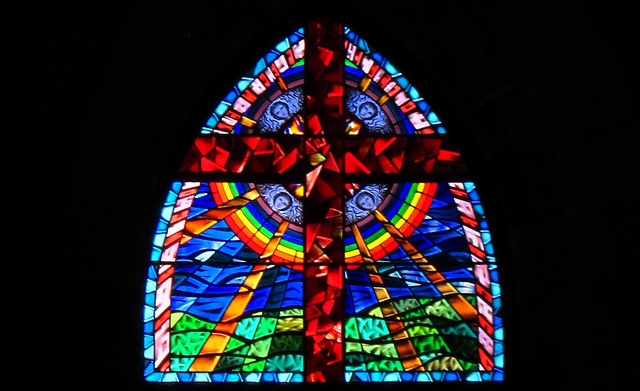It’s the Tuesday after the horrendous shooting at the Orlando gay bar, and questions are flooding my mind: How do I grieve on behalf of a community? How can I be supportive without making this about me—my clever Facebook post, my public prayer, (and yes) my blog post? How do I carry both my former ignorance and present commitment to LGBTQ advocacy in the face of tragedy?
How? I respond the way I always do: by reading and writing, my liturgical practices.
This is good and also, of course, never enough.
A few weeks ago I grabbed coffee with a former student of mine, Mary, who among many things asked what I was reading. I told her while I have been steeped in fiction for several years I’ve found myself returning to the truths of non-fiction: hearty theology and compelling memoir.
In talking to Mary I remembered why I had been drawn to memoir in the past—that summer I read narrative after narrative, all true or as true as memory allows—because it allowed me to step into someone else’s world, to learn how to empathize with obese divas and New York drag queens, kinds of people I don’t know and may never meet.
Yesterday morning I finished Garrad Conley’s memoir Boy Erased about the time he spent in ex-gay therapy. It was hard to get through, the repetition of hate and ignorance spoken to Conley and his peers. It reminded me of the world I left in Indiana, to where I am getting ready to return. And it reminded me of myself, my own indifference toward people different from me. (Lord, help me.)
We read stories to become better people; I know this, but it’s also not enough. Stories in their predictable rising action-climax-resolution structures give us room to work things out: to work out hope, to work out our hang ups–our racism, sexism, homophobia.
We read stories to contain our rampant desires and contain our overwhelming grief.
This summer I am assistant instructor for an Old Testament survey course. Reading, listening, I am remembering my love for the prophets: their ache for justice, their tenacious hope. There is story here, too, in the poetry of the prophets. Today I sit and meditate on Isaiah 56, a prayer for my queer brothers and sisters:
This is what the Lord says:
“Be just and fair to all.
Do what is right and good,
for I am coming soon to rescue you
and to display my righteousness among you.
Blessed are all those
who are careful to do this.
Blessed are those who honor my Sabbath days of rest
and keep themselves from doing wrong.
“Don’t let foreigners who commit themselves to the Lord say,
‘The Lord will never let me be part of his people.’
And don’t let the eunuchs say,
‘I’m a dried-up tree with no children and no future.’
For this is what the Lord says:
I will bless those eunuchs
who keep my Sabbath days holy
and who choose to do what pleases me
and commit their lives to me.
I will give them—within the walls of my house—
a memorial and a name
far greater than sons and daughters could give.
For the name I give them is an everlasting one.
It will never disappear!”
My pastor, Phil, when teaching this passage in his Sabbath & Spirituality class, noted how fitting was the gift in verse five: eunuchs, estranged for their non-binary genitalia/behavior, were given a memorial: a phallic icon of their welcome into the kingdom of God. A memorial, a name, and Sabbath rest.
How do we grieve for a community of lesbian, gay, bisexual, trans, and queer people? How do we acknowledge and honor their pain that we will not fully understand as straight, cis-gendered women and men? We pray and pray and pray this blessing of God: “The name [God gives] them is an everlasting one. It will never disappear!” May it be so.
About Lauren D. Sawyer
I am a Ph.D. student at Drew Theological School studying Christian Social Ethics. Learn more about me at laurendsawyer.com.
